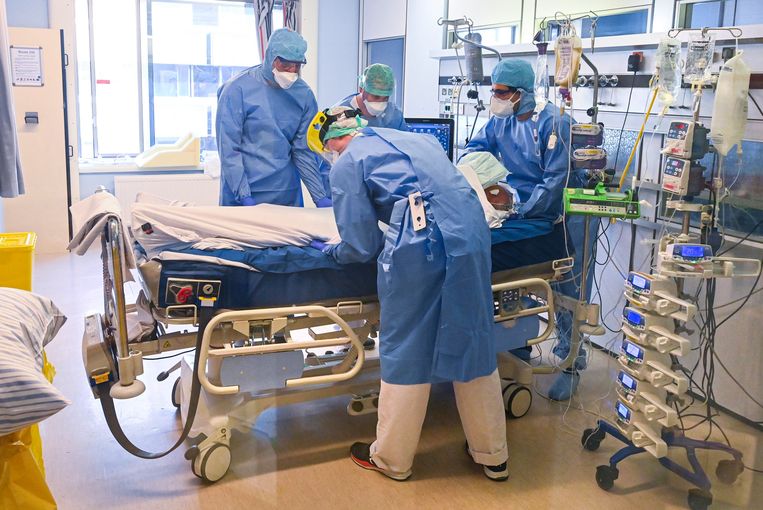An average of 588.3 people per day tested positive for the new coronavirus (Covid-19) in Belgium during the past week, according to figures by Sciensano on Sunday.
The figure refers to the period from 6 to 12 August and represents a 1% increase compared to the average of the week before. That compares with a 5% increase shown in yesterday’s figure, down from 9% on Friday. So the general trend is downward.
Sciensano reports figures with a four-day delay so as to be able to verify the numbers. For the time being, however, the count stands at 524 for 13 August and 109 for 14 August, suggesting (subject to confirmation) that the trend continues downward.
Antwerp province has by far the largest number of cases, at more than 1,000 a week in the last three weeks – an average of 1,343 a week. Brussels in second place, over the same period, had an average of 432.6 cases a week.
The total number of confirmed cases in Belgium since the beginning of the pandemic is 77,869 – 756 more than yesterday. The total reflects all people in Belgium who have been infected, and includes confirmed active cases as well as patients who have since recovered, or died from the consequences of the virus.
From 6 to 12 August inclusive, the authorities recorded an average of 31 new hospital admissions per day, compared to 26.7 a week earlier. On 11 August, the daily total even reached 48 patients, the highest number since 26 May.
In total, 309 patients were in hospital yesterday, one fewer than the day before, while 82 patients were in intensive care, an increase of two since yesterday, according to Sciensano’s dashboard. Of those, 43 are on a respirator, two fewer than yesterday.
Since the beginning of the epidemic in Belgium, a total of 18,680 people have been hospitalised, 54.9% from Flanders, 29.7% from Wallonia and 15.4% from Brussels.
The number of hospital admissions is a logical consequence of the increase in positive tests seen over the past two weeks. In an earlier phase of the epidemic in Belgium, the numbers looked rather different, because the people affected were generally older.
For the time being, the disease is affecting a higher proportion of young people, who even though infected are less likely to require hospitalisation.
An average number of 7.3 deaths occurred per day over the period 6 t0 12 August – an increase of more than 100% compared to last week’s report. Here again, deaths follow infections with a delay of two to three weeks.
And while the deaths are rising, they are doing so less quickly that in the first wave of the epidemic. Again, the numbers of young people infected plays a role. Also, in the beginning of the epidemic care home fatalities were reported as Covid-19 even in the absence of a test.
The total number of deaths in Belgium since the beginning of the pandemic is currently 9,935– 11 more than yesterday.
“Sciensano would like to extend its deepest gratitude to all healthcare professionals for their daily investment in the fight against coronavirus and their commitment to patients,” the federal health institute said.
Alan Hope
The Brussels Times

